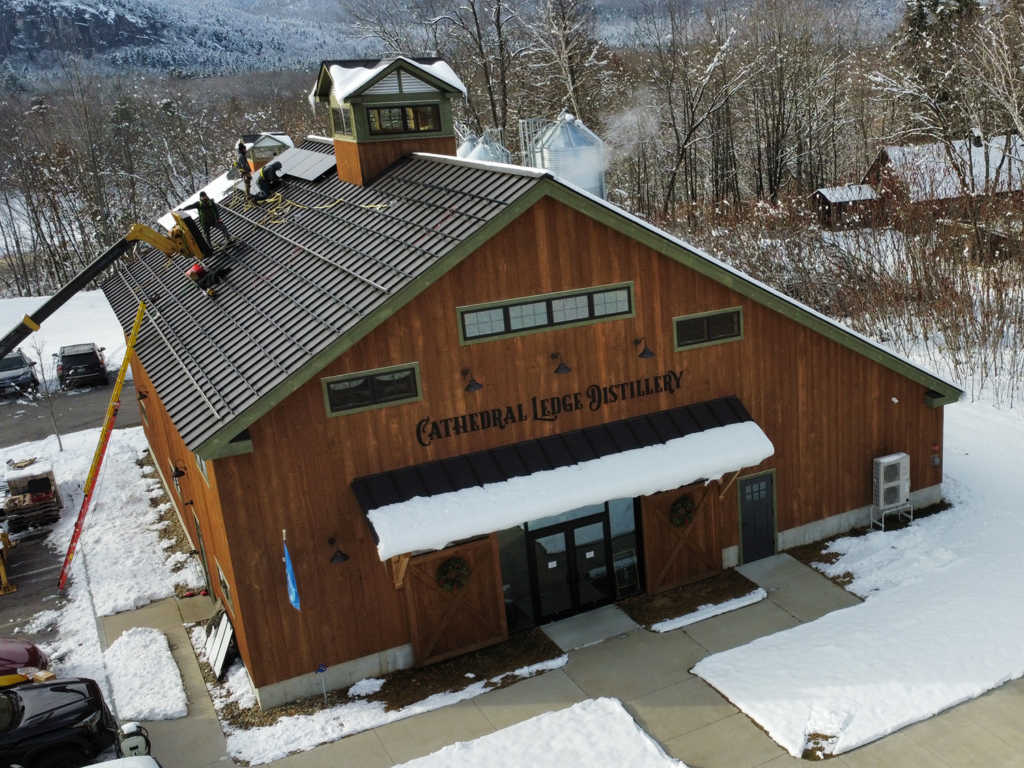
Cathedral Ledge Distillery of North Conway, New Hampshire, is pleased to add solar panels to its extensive efforts to be as environmentally friendly as possible. The 63-panel system was installed by Mains Electric of Alton, New Hampshire. While solar power was always envisioned, it was not practical to accurately design a system for the distillery until the new equipment was installed and operating procedures were optimized. The new solar array is expected to provide for all of the distillery’s electrical needs.
Distilling is inherently energy intensive. Owners Christopher and Tracy Burk have made extensive efforts to keep Cathedral Ledge Distillery as environmentally friendly as possible. The distillery is housed in a timber frame barn design to look like it has been there for hundreds of years, but is packed with technology to make it as efficient as possible. The windows, walls and roof exceed code requirements for efficiency with R-values as high as 50. The power plant for the still is a high efficiency fully modulating design. The lighting is 100% LED, and the primary pumps and agitators utilize energy saving variable frequency drives. The production system utilizes a custom designed recirculated water cooling system including two condensers and three 1000-gallon underground tanks which allow heat to be recycled through the radiant floor heat. The system also allows the distillery to take advantage of New Hampshire’s lower than average early morning ambient temperatures.
The distillery’s eco friendly focus extends beyond the production facility. The distillery offers its customers two free-to-use electric vehicle chargers, and their spirits are packaged in 100% post-consumer recycled glass. Perhaps the most impactful decision the Burks have made has been the one to become New Hampshire’s only USDA certified organic distillery. In addition to offering consumers and farmers a choice that does not involve GMOs and synthetic pesticides, herbicides, and fertilizers, organic farming involves great forethought. Organic farming techniques improve soil quality, pollinator habitat, biodiversity and carbon sequestration while reducing fossil fuel use, erosion, and chemical runoff.
When asked about the aesthetic impact of the solar panels, Christopher Burk responded, “it is certainly something that we considered. We worked with the team at Mains Electric to match the color and slope of the roof, as well as to preserve the crisp, clean lines of the barn’s New England architecture. At the end of the day, we all need to do more to preserve the environment, and this is an opportunity for us to show leadership on that front.”
